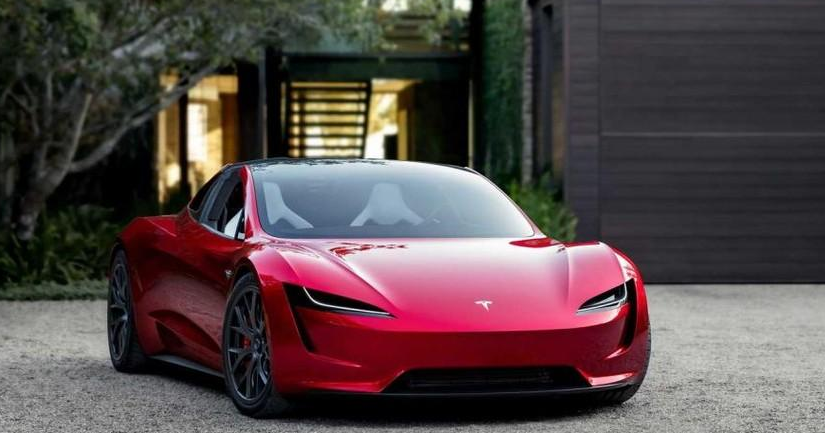Tesla Plunges 63%!
Advertisements
The dwindling sales figures for Tesla in Europe have recently taken center stage, highlighting a troubling trend for the electric vehicle manufacturer. In January, the company reported a staggering 63% drop in new car registrations in France, which is the EU's second-largest market for electric vehicles. Registering only 1,141 vehicles in this crucial market, Tesla's performance has raised eyebrows, especially as the overall vehicle market in France experienced only a 6.2% decline.
Sweden and Norway, two of Tesla's traditionally strongholds, also saw significant decreases in sales, with registrations falling by 44% and 38% respectively. In Sweden, only 405 new Tesla vehicles were registered in January, while Norway saw 689 registrations. By contrast, the overarching car sales in these markets managed to grow – Sweden’s registrations rose by 14% and Norway experienced an astonishing 82% surge. This juxtaposition begs the question: what is causing Tesla’s fall from grace in these once-loyal regions?
Several media outlets have linked the decline in Tesla’s popularity to the increasing unpopularity of its CEO, Elon Musk, due to his recent forays into European politics. Musk's controversial tweets and public comments targeting European leaders have seemingly sullied the brand’s image in these markets that once embraced their innovative electric cars. Critics suggest that his approach and political positioning could be contributing factors to the waning enthusiasm for Tesla in Europe.
Meanwhile, the situation is not exclusively a European phenomenon. Reports also indicate that sales in California, the largest EV market in the United States, are experiencing a downward trend. In all four quarters of 2024, Tesla’s car registrations declined. The Model 3, Tesla's second most popular vehicle, also reported a 36% drop in registrations, underscoring a broader issue within the company.

Analyst data from La Plateforme Automobile reveal that January’s figures represent Tesla’s worst performance in France since August 2022. Tesla's market share erosion in Sweden and Norway is particularly concerning given that the company has struggled to maintain its once-dominant position despite the popularity of the Model Y, which remains the top-selling car in both nations. A recent market sentiment survey highlighted that negative consumer perceptions towards Tesla are on the rise, driven in part by Musk's controversial political opinions.
During a time when many regions are seeing growth in electric vehicle adoption, Tesla appears to be stumbling amid strengthened competition and changing consumer preferences. Notably, Musk’s support for far-right political movements within Europe has drawn considerable criticism, alienating potential consumers in key markets of Sweden and Norway. Significantly, a survey indicated that only 11% of Swedes held a favorable view of Tesla in the wake of Musk’s political controversies.
In addition to the evident struggles in Europe, recent statistics indicate a troubling trend for Tesla in the UK, Portugal, Denmark, the Netherlands, and Spain, where the company saw declines of up to 75%. Such stark numbers illustrate a concerning narrative where Tesla's brand, once synonymous with electric vehicles, is facing major challenges across multiple pivotal markets. This industry-wide challenge comes at a time when Tesla desperately needs to innovate and adapt to maintain its edge in the fiercely competitive electric vehicle sector.
Critics have noted that Musk's approach, characterized by direct interventions in regional politics through platforms such as Twitter, has not only drawn ire but has resulted in significant public backlash against the Tesla brand itself. Many citizens in Germany and the UK believe Musk lacks a true understanding of their political landscapes and should steer clear of their political discourse. This increasing disenchantment is compounded by Musk’s confrontations with labor unions in Scandinavia, which have further tarnished his and Tesla’s image.
Notably, despite recent investments and the introduction of new vehicles like the Cybertruck, Tesla is witnessing a precarious decline in various international markets. Figures reveal that through 2024, Tesla's electric vehicle sales in the EU have plummeted by 13%, particularly highlighted by a 41% sales drop in Germany. This decline is attributed to factors such as an aging vehicle portfolio and increasing competition, with further struggles expected due to the removal of government subsidies.
As we turn to the American landscape, the situation is no rosier. California remains pivotal, producing the most significant market for electric cars in the U.S. Despite Tesla's previously formidable presence, figures show it has lost significant market share, with projections indicating a decline from 60.1% to 52.5% of the zero-emission vehicle market across 2023 and 2024. Rival manufacturers such as Honda and Hyundai have seized this opportunity, increasing their shares while Tesla struggles to maintain its footing.
Numerous articles point towards Musk's political engagements as potential factors in the brand’s diminishing popularity, particularly as many of Tesla's core customers tend to lean more progressive. Musk’s fervent support for Republican candidates and his confrontation with California’s Democratic leadership may strain Tesla’s relationship with its consumer base, further compounding the challenges faced in the marketplace.
The implications of these trends pose considerable questions not just for Tesla's leadership but the future of electric vehicles in regions where they were previously unchallenged. Musk’s 2021 relocation of Tesla's headquarters to Texas reflects a strategic shift that may ultimately alter his role within California's automotive industry — despite maintaining operations in the state. As the narrative continues to evolve, analysts remain keenly aware that both consumer sentiment and market dynamics play critical roles in shaping outcomes for electric vehicle companies.
The ongoing predicament highlights the necessity for Tesla to re-evaluate its branding strategies and market engagement, especially in regions witnessing rapid EV growth. Without impactful modifications to its approach, including addressing prevailing political interactions and consumer perceptions, Tesla may struggle to recover its once-dominant position within the global automotive industry, facing an uphill battle as it contends with both public sentiment and increasing competition.
Post Comment